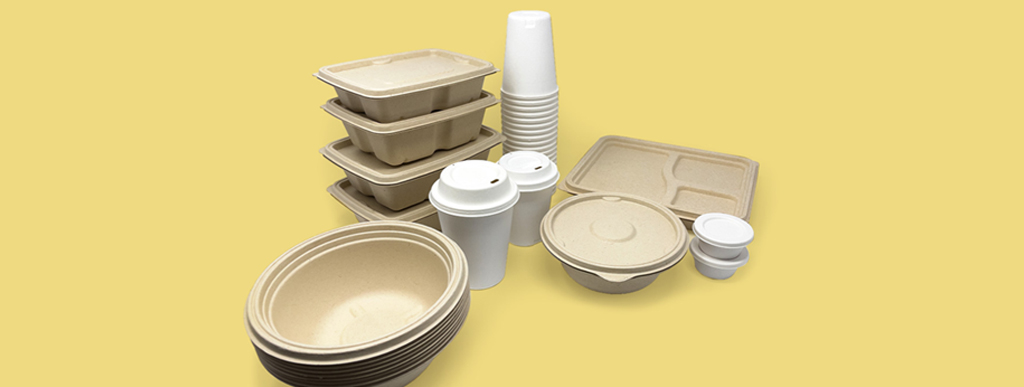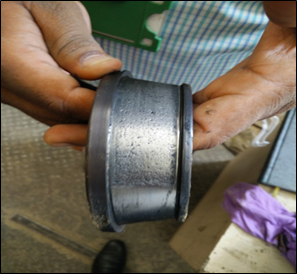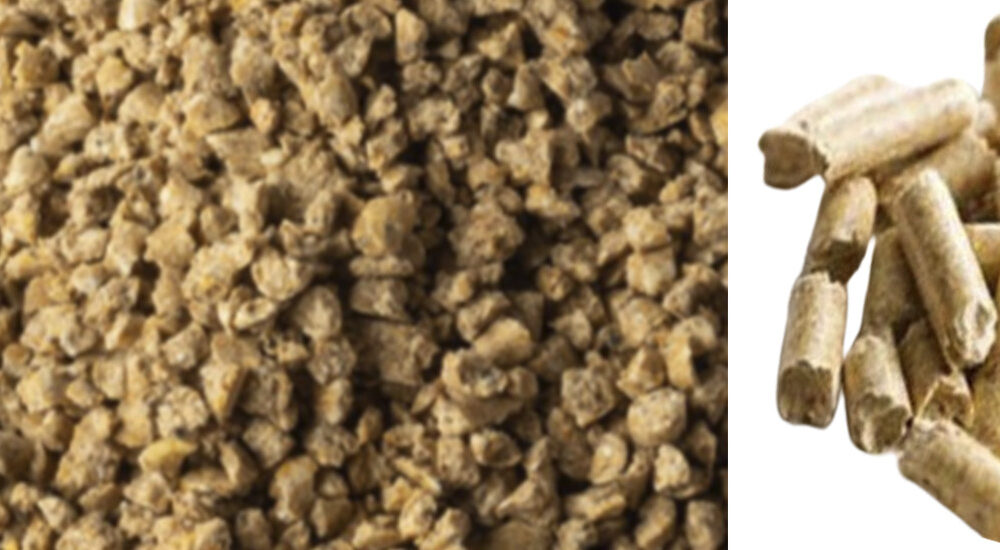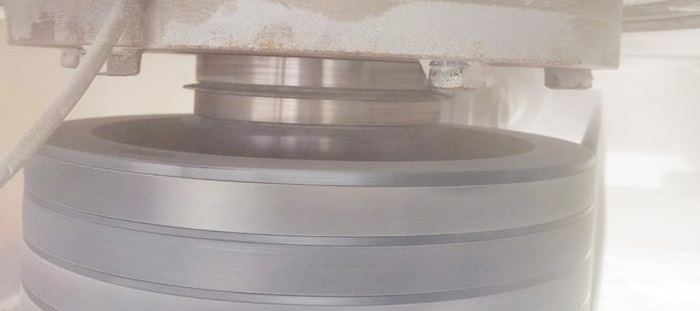
Hydraulic Food Grade Oil For A Sustainable Cause
June 29, 2022
How can lubricating oils impact process efficiency in forming processes?
October 15, 2022Food grade grease increases pellet mill bearing life by 2X
Berulub FG H 2 SL at Pellet feed mill: Case study of impact of food grade grease on performance and life of tapered roller bearings at food pellet press mill
The customer, a reputed international brand with diverse business interests ranging from agriculture and food processing to international logistics. The case study is specific to its plant involved in manufacturing products related to animal nutrition /feed.
Application : The purpose of food pelleting is to process finely divided (pulverised), nutrient feed ingredients by using heat, moisture and mechanical pressure to form larger particles (pellets). While the fine particles are dusty and difficult to handle, the end result of larger pellets with desired taste are easier to manage and find better acceptance with domestic pets and poultry.
The pellet mill is a critical equipment in the process where the conditioned mash ( balanced assortment of grain, bran or malt feed, fibre and protein ) from the mixer is fed into circular rollers in the die chamber. The rollers, press the soft mash in a circular die. Knives placed outside the circular die cut the pellets into required lengths.

Operating conditions of the pellet mill
The temperature at the die chamber was observed around 90- 120°C due to the mash that is conditioned with vapour, heat and continuous vibration in the mixer. The closed environment in which the pellet mill works does not allow for easy dissipation of the heat generated in the system.
| No. of rollers: | 2 |
| No. of bearings: | 4 nos. |
| Bearing type: | Tapered roller bearing, no. 33220 |
| Bearing rotational speed: | 200 rpm |
| Load on bearing: | High |
| Bearing temperature: | 110 °C (recorded during operation) |
| Grease type: | Brand O, synthetic food grade grease |
| Re-greasing frequency: | Once in 8 hours |
| Re-greasing quantity: | No specific quantity. Practice to pump in fresh grease until it oozed out of the roller |
| Greasing method: | Air gun |
| Bearing life with brand O grease: | 4 months approx. |

Pellet mill die chamber
Premature bearing failures
The unusual rate of bearing failure was a cause of concern for the customer. Further it was observed that dust accumulation on the oozed grease was a recurring phenomenon at the pellet mill.
Discussing the instances of higher bearing failure, the Bechem Application Engineering team had a chance to observe the lubrication practices at the shop floor. The team then submitted its report to the Maintenance Dept., broadly attributing the failure causes to the following,
- Improper and inconsistent lubrication to the bearing
- Mishandling: Improper assembly practises of new bearing
Bearing failure mode: Spalling
Analysis of failed bearings
Micro spalling was visible in the inner race of the bearings. The spalling was not extended throughout the contact surface, indicating only a portion of the load zone was exposed to severe fatigue stresses.
This phenomenon of micro spalling are typical to bearings rotating at low RPM’s and temperatures above 90°C. The lubricant plays a major role in avoiding such micro spalling. If the grease does not have adequate temperature resistance properties, lubricating film will rupture under low speeds, high loads and elevated temperature conditions. Subsequently, industry best practices for lubrication and proper bearing assembly procedure was discussed with the maintenance team. BECHEM’s synthetic food grade grease, ‘Berulub FG H 2 SL’ was recommended as an effective alternative to the existing grease. Also, a calculated quantity was recommended for optimum re-lubrication of the bearings instead of the ‘continuous pump until purge’ method.

Why Berulub FG H 2 SL
Based on special Calcium Complex Soap thickener,
- Very good structural stability to retain consistency in high load applications
- Provides good vibration resistance
- Excellent drop point (≥ 400°C) which results in high temperature resistance
- Provides excellent resistance to moisture and water
- High load bearing capacity with a four ball weld load of > 3000 N
- Excellent corrosion protection property with an Emcor corrosion protection rating of 0 / 0
EMCOR Test: The purpose of the test is to measure the ability of a grease to protect a bearing against corrosion in the presence of water. The procedure subjects a set of new, cleaned and lubricated bearings to partial immersion in water with no applied load at a constant speed (80 revolutions per minute), in a predetermined sequence of starting and stopping for a period of approximately one week. The results are recorded according to the following table:
| Rating | Designation | Description / Criteria |
| 0 | No corrosion | No corrosion |
| 1 | Trace | No more than three spots of corrosion, none with a diameter greater than 1 mm |
| 2 | Slight / light | Small areas of corrosion, covering not more than 1% of the surface but more or larger corrosion sites than for rating 1 |
| 3 | Moderate | Areas of corrosion covering between 1 and 5% of the surface |
| 4 | Heavy / Severe | Areas of corrosion covering between 5 and 10% of the surface |
| 5 | Very Severe | Areas of corrosion covering more than 10% of the surface |
Base oil - Synthetic PAO (Polyalphaolefin) Oil
- Low traction co-efficient to offer least internal friction for bearing rotation
- Fully saturated hydro carbon giving high temperature resistance
- Hydro phobic nature to provide water and steam resistance
- Uniform molecular structure and molecular weight providing high viscosity index (150).
- Low volatile losses when exposed to high temperatures
Berulub FG H 2 SL is also food grade H1 certified by NSF.
Initial trial observations with Berulub FG H 2 SL
- Re-lubrication cycle extended from 8 hours to 12 hours
- Monthly grease consumption reduced by 50% with Berulub FG H 2 SL
- Maintenance team was informed to re-grease with calculated quantity only
- Bearing temperature reduced by 15 °C from 110 °C to 93-95°C
- No grease leakage was observed from the bearings
Based on initial trial results, the customer switched over to Berulub FG H 2 SL. The maintenance team was glad with the upkeep of pellet mill as there was no sign of oozed grease that generally attracted dust.
Extended trial observation revealed no bearing failure for over 8 months at the pellet mill, doubling the bearing life with Berulub FG H 2 SL compared to that of the earlier food grade grease.
Support response: Median email response time of less than 3 hours.



